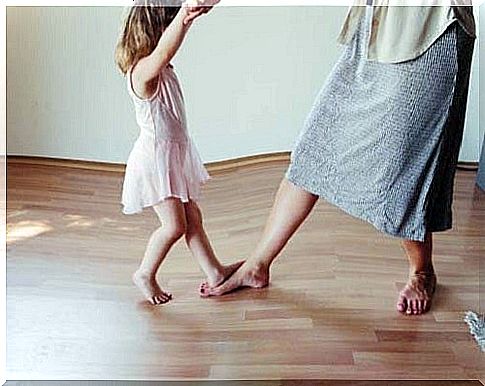How To Be Successful In The Emotional Education Of Your Children
Education is not just about filling an empty mind with knowledge and data.

Through correct emotional education, we not only teach our children to be good citizens, but also ensure their future happiness.
You can teach your kids to cross the street when the light is green, to take care of their pets, to read and count, and even to recycle the trash around the house.
But, do you also teach them to express their feelings – to say out loud how they feel before they lock themselves in their room and slam the door?
Educating also means offering strategies through which one must be able to cope in this complex world. To learn to be happy while making others happy.
It is vital to value the emotional education of your children as a goal that must be met every day. Nowadays, educational centers have not integrated this dimension into their academic courses.
However, it is essential that, from an early age, we can discover these important aspects of life. We will explain this to you in the rest of this article.
How to develop the emotional education of your children?

The education of our children begins from the first day they arrive in the world. Because educating is also giving love, caresses, words and rules.
It is also transmitting habits such as time to eat, time to sleep. But also a smile in which children see themselves and will imitate later.
Emotional education is that voice that gives them courage and support. That gives them security at every step they take. It is this reinforcement that encourages them to be strong after each failure or disappointment.
The real adventure comes after 8 years. Indeed, at this age, children begin to have schemas about what the world is, and what they themselves are. They already have a sense of justice and know more or less what is right and what is wrong. From this age, they will establish their personality and their interests.
They will look at the world with a broader curiosity, hence the key that we represent to bring them support, autonomy and this daily tenderness.
Consider these dimensions as part of your children’s emotional education:
1. Self-knowledge
Children should grow up being the best version of themselves. This means that they must be aware of their potential and their limits.
Teach them the value of doing things on their own and being independent So that they can see, day in and day out, what they are capable of doing, what makes them feel good and what makes them feel good difficulty.
Be very careful not to overprotect them. You will then prevent them from feeling responsible for themselves or having high self-esteem.
Give them the opportunity to grow with each stage they go through. But remember that every time they make a mistake, you should not punish them. And show them how they can do better.
2. Give them responsibilities

A person who is responsible for himself has emotional maturity. She is someone who does not depend on others to do things and who is confident in herself.
As they grow older, empower your children.
They must learn that life is not just rights and freedoms. But that we must all be responsible for our lives to be self-reliant.
3. Learn to be happy but also accept frustration
From a very young age, they must be able to understand that they cannot have everything. Whenever they receive a negative response from you, they shouldn’t despair like it’s the end of the world.
Imagine, for example, that your 8 year old child asks you to buy him a cell phone. Obviously, he’s still too young for that, so you have to argue and make him understand your disagreement.
If he gets angry, starts banging on furniture, and screams, he’s a child who hasn’t learned to accept frustration. In the long run, this will make him very unhappy.
Manage these situations appropriately, make him listen to reason, set limits and make him understand every decision you make.
4. The importance of the common good in emotional education

Life is not an island where you are always alone. We all live in a society with other people who are part of our daily lives. We bond and grow personally and emotionally with others.
This means that in order to be successful in the emotional education of our children, we must also work on these dimensions:
- Encourage empathy. This allows him to recognize the emotions in the people of his close entourage (his grandparents, his brothers and sisters, his friends, etc.)
- Understand that if I do something wrong it affects others.
If I force myself to be respectful, to understand and to make others happy, “we all win”.
If I offer a smile, it is most likely that I will be answered with the same smile. Positive emotions are always the most powerful.
- It is also important to ensure that children learn to be happy themselves. That is, to showcase their passions, to do new things that bring them knowledge and satisfaction and to know that loving yourself is a powerful weapon.
A person with good self-esteem, and with good physical and emotional acceptance, will also be able to love others.
Do not hesitate to put these tips into practice and you will see that you have success in the emotional education of your children!









